Are you patriotic? What does being patriotic mean to you?
Patriotism, at its core, is the expression of devotion and vigorous support for one’s country. It’s a sentiment that arises when we attach our identity and ego to a geographical or cultural group. This attachment can foster a powerful sense of belonging and unity, strengthening the collective spirit of a nation. Yet, as with any form of group identity, patriotism carries a caveat: it can sometimes blind us to our shared humanity and the moral compass that guides us as individuals.

When patriotism becomes exclusionary, it risks alienating those who are perceived as different or foreign. It can create an “us versus them” mentality, where the “other” is targeted or marginalized. This is where the concept of patriotism must be carefully examined. True patriotism should never overshadow our responsibility to uphold the rights of the individual, nor should it compromise our inner sense of what is right.
To explore this further, I find it helpful to draw on Rudolf Steiner’s ideas about the individual, group identity, and karma. Steiner, a philosopher and spiritual thinker, believed that each individual has a unique karmic responsibility to evolve and grow. This evolution isn’t just a personal journey; it’s deeply intertwined with the groups we identify with—whether that’s a nation, a language, or a cultural community. By associating with a group, we become co-responsible for its actions and its collective karma.
But what does this mean in practical terms? Let’s break it down.
Karma, in simple terms, is the idea that our actions have consequences—not just for ourselves, but for the world around us. When we identify with a group, we inherit a share of its collective karma. This means that the actions of the group, both positive and negative, become part of our own karmic journey. For example, if we identify with a nation that commits acts of injustice, we share in the responsibility to address those wrongs. Conversely, if we contribute to the betterment of that group, we help to uplift its collective karma.
This idea of collective karma challenges us to think beyond blind patriotism. It asks us to consider how our individual actions can influence the groups we belong to. Are we contributing to the group’s growth and evolution, or are we perpetuating its flaws? As Steiner suggests, our responsibility isn’t just to ourselves—it’s to the collective humanity we are part of.
This brings me to the heart of the matter: patriotism, while meaningful, can never take precedence over my inner moral compass. My devotion to my country must always be tempered by my commitment to what is right and just. If patriotism becomes a shield for injustice or exclusion, it loses its value. Instead, patriotism should inspire us to work toward the betterment of our nation and, by extension, humanity as a whole.
Steiner’s concept of karma also reminds us that we are not bound by the groups we are born into. While we may inherit certain identities—such as nationality or language—we have the freedom to choose how we engage with them. We can decide whether to identify with a group, and how to influence its collective karma. But there’s one identity we cannot escape: our humanity. We are all part of the human family, and the collective karma of humanity is something we all share.
In this light, patriotism becomes a tool for collective evolution. It’s not about blind loyalty or exclusion; it’s about using our individual actions to positively impact the groups we identify with. By doing so, we address not only our personal karma but also the collective karma of our nation and, ultimately, humanity.
So, do I see myself as patriotic? Yes, but with a caveat. My patriotism is rooted in a deep sense of responsibility—to my country, to the individuals within it, and to humanity as a whole. It’s a patriotism that seeks to uplift, to heal, and to evolve. It’s a patriotism that recognizes the interconnectedness of all people and the shared karma we carry.
In the end, patriotism is just one layer of a much larger picture. It’s through our individual actions and our group identities that we evolve as a species. And it’s by honoring our common humanity that we can truly create a world worth being patriotic for.
What makes you feel nostalgic?
There’s something magical about the smell of smoke from a coal stove. It has a way of carrying me back through the years, to a time when life was simpler, warmer—full of love and laughter. My earliest memory is sitting with my mother, polishing the black coal stove until it gleamed. The silver trimmings caught the light, a testament to the care and pride she put into creating a home.

Those moments weren’t just about chores; they were a ritual of connection. In the kitchen, surrounded by the comforting warmth of the stove, the family would gather. The scent of meals cooking, hearty and nourishing, was an invitation to togetherness. It was more than just a place to prepare food; it was the hearth, the heart of our home.
Now, when I think back, it feels less like a memory and more like a dream—a dream of days gone by, when love was a tangible thing. My mother was the anchor of those moments, her presence wrapping us in a sense of belonging.
Today, things are different. My mother lives far away, and the cruel irony of life is that she can no longer recognize me as her son. Our conversations are fleeting, strained by distance and the merciless passage of time. Thankfully, my sisters are close to her and can ensure her needs are met, but the closeness we once shared is no longer there.
The ache of nostalgia is a bittersweet thing. It reminds me of how it felt to be loved and cared for unconditionally. Now, as the breadwinner, the roles have reversed. I am the one others rely on, the provider, the protector. While I’m proud to fill that role, it contrasts starkly with the carefree days when I could bask in the warmth of being someone’s child.
The coal stove remains a symbol of that love—a bridge to a time when happiness was as simple as sitting by the fire, feeling the presence of family. Even now, that smell can bring it all back, a flicker of light in the solitude of memory. It’s a reminder that while the present may demand strength, the past will always offer its quiet comfort.
Tell us about your first day at something — school, work, as a parent, etc.
Memories are curious things. They slip through our fingers like water, leaving behind only the faintest impressions of what once was. I’ve often wondered about the nature of “first days”—those pivotal moments that should burn bright in our minds, yet often fade into a hazy blur of emotion.
It’s a peculiar phenomenon, this inability to clearly recall our most significant beginnings. The first day of school, a new job, or a life-changing adventure—these moments are so charged with emotion that the very intensity seems to wash away the specific details. We’re left with a feeling, a vibration of experience, rather than a crisp, detailed recollection.
Sometimes, we don’t even recognize a “first day” until long after it has passed. It’s like that inverse of the old saying: “You don’t know what you’ve got until you’ve had time to reflect.” These moments sneak up on us, their significance revealed only through the lens of time and perspective.
Take birthdays, for instance. We celebrate them with cake and candles, surrounded by smiling faces, yet the actual moment of birth remains an impenetrable mystery. Our earliest memories are but fragments—a collection of sensations, snippets of sound, whispers of emotion.
But then, sometimes, a first day etches itself so deeply into our soul that it becomes more than a memory. It becomes a story.
My first day story begins on an ordinary Saturday at a local auction. Auctions were our Saturday ritual—my father and I, wandering through rows of curious trinkets and forgotten treasures. These weren’t just sales; they were adventures for a young boy with an insatiable curiosity. Every object told a story, every item held a mystery waiting to be unraveled.
On this particular day, everything changed.
The auction grounds were a labyrinth of possibilities. Sellers hawked everything from rusty tools to gleaming appliances, from vintage furniture to live animals. My father, a meticulous tool maker, navigated the chaos with practiced ease, always hunting for a bargain that could serve his craft.
I remember the weight of the 50-cent coin in my pocket—a small fortune for a boy who rarely had money of his own. It was more than currency; it was freedom, a ticket to independence in this adult world of bidding and bargaining.
Then I saw them—seven pitch-black puppies, a writhing mass of fur and energy. Their eyes were bright, their little bodies tumbling over one another in a playful dance. I was mesmerized.
Instinctively, I sat down beside them, my small hands reaching out. They welcomed me without hesitation, nuzzling and licking, their warmth spreading through my entire being. In that moment, something stirred within me—a connection deeper than words, a bond waiting to be formed.

When the auctioneer began selling the puppies, I was transformed. No longer just a spectator, I became a determined bidder. With each puppy sold, I raised my hand, my 50 cents burning a hole in my pocket, my heart set on bringing one of these magical creatures home.
The male puppies were quickly claimed, but I remained undeterred. And then, almost as if fate had orchestrated this moment, the last puppy—a female with the most enchanting white spot under her chin—remained.
Perhaps it was my unwavering enthusiasm, or maybe the auctioneer’s soft spot for a young boy’s dream, but suddenly, miraculously, she was mine. Fifty cents was all it took to change my world.
I thought of Flash Gordon and his black panther from the radio stories I loved. In that instant, I knew her name: Tiger.
My father’s initial growl of disapproval melted into reluctant acceptance. The R80 spent on spaying was a small price to pay for the joy that would unfold in the years to come. Tiger would become more than a pet—she would be my companion through childhood, my silent guardian through the turbulent years of school and early adulthood.
Looking back, I realize that some moments define us—not by their grandeur, but by their unexpected magic. That day at the auction was more than just a first day with a pet. It was a lesson in passion, in pursuing what captures your heart, in the unexpected ways love finds us.
Tiger wasn’t just a dog. She was a memory, a friend, a piece of my childhood that I would carry with me forever.
In reflecting on that day, I realize that some first days aren’t about perfect recall. They’re about the feeling that lingers, the story that continues to unfold. My first day with Tiger wasn’t just about acquiring a pet. It was about discovery—of myself, of love, of the unexpected magic that can happen when you least expect it.
Perhaps that’s the true nature of first days. Not a precise photograph, but a living, breathing experience that continues to shape us long after the moment has passed.
What positive events have taken place in your life over the past year?
As I look back on 2024, I’m struck by the rich vista of experiences that have woven together to create a year of profound personal growth, family connections, and unexpected adventures. This year has been a beautiful blend of professional achievements, spiritual exploration, and cherished moments with loved ones.

Family: The Heartbeat of My Year
Family has been the constant rhythm underlying every significant moment of 2024. From the very start, we kicked off the year at our beloved beach house in the southernmost point of Africa, setting a tone of togetherness and relaxation. Throughout the year, I treasured numerous precious moments: celebrating birthdays with my children and grandchildren, sharing coffee catch-ups, and creating memories that will last a lifetime.
A particularly touching highlight was welcoming our kitten Shiva in June, bringing warmth and cuddles into our home during the middle of winter. Watching my grandchildren explore the world – whether at the World of Birds with monkeys climbing about, attending a first netball day, or sharing art experiences like introducing my granddaughter to watercolors – filled my heart with joy and wonder.
Professional and Personal Growth
This year presented remarkable opportunities for professional and personal development. In April, I was privileged to contribute to an international forum in Brazil developing guidelines for Artificial Intelligence implementation. This experience was not just professional but deeply personal, allowing me to explore spiritual and religious spaces in a new country.
Back home, I continued to engage with technology and governance, participating in fascinating meetings like the IT forum for provincial legislators and an intriguing AI roundtable discussion.
Our national elections resulted in a historic shift in our national political landscape, resulting in a Government of National Unity, was a moment of significant reflection and hope.
Spiritual and Personal Exploration
2024 was also a year of deep spiritual growth and scholarly pursuit in the realm of runic traditions. A significant milestone was the publication of FUTHORKH, the first journal of the Knights of Runes. In March, I was thrilled to receive this inaugural edition, which featured several of my own contributions. These included a comprehensive write-up on the purpose of the Knights of Runes, a profound reinterpretation of the first 80 verses of the Havamal, and an original rune poem that reflected my deep connection to these ancient symbolic traditions.
My spiritual journey continued to unfold with various meaningful experiences. I marked a significant personal milestone by getting a tattoo of an Armanen rune row encircling a dragon, symbolizing my initiation into Norse mysteries. My Rosicrucian journey continued with meaningful experiences, including presenting a meditation presentation at the Cape Town Pronaos conclave.
In October, I added to my scholarly collection by acquiring Gorsleben’s Edda, a treasured text that further deepened my exploration of runic wisdom and Norse spiritual traditions. This book represents more than just a purchase – it’s a gateway to deeper understanding and continued spiritual growth.
I made deliberate efforts to connect with myself and nature. A day of solitary meditation at the Meulwater botanical gardens and an art project focusing on the four elements were powerful moments of self-discovery and introspection.
Adventures and Family Trips
Our road trips and outings were filled with excitement and discovery. A memorable two-week, 3000+ km journey to visit my mother was a highlight. Driving the 4×4 Gladiator route, enjoying a safari in Pilanesberg National Park, and spending time with my sisters created lasting memories.
Moments of Joy and Anticipation
The year was punctuated by moments of pure joy – like the exciting news of my stepson and his wife’s pregnancy, and the anticipation of a gender reveal in December. Family celebrations at restaurants, beach house retreats, and our first camping trip in years at Vloedbos resort were simple yet profound moments of connection.
Reflection
As I write this, looking forward to ending the year at our cherished Cape Agulhas beach house, I’m overwhelmed with gratitude. 2024 has been a testament to the beauty of family, the excitement of personal growth, and the joy of unexpected adventures.
Every challenge was balanced by moments of beauty, every professional engagement complemented by deep personal connections. It’s been a year of living fully, loving deeply, and embracing every experience with an open heart.
Do you have a favorite place you have visited? Where is it?
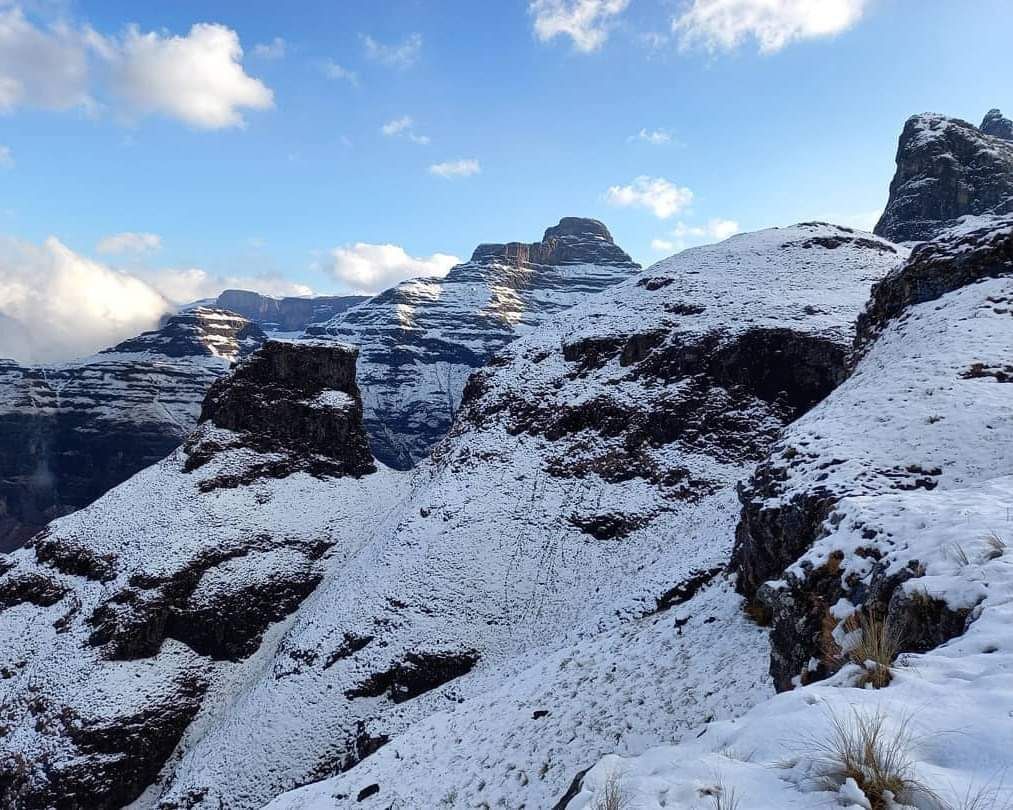
My two favorite places that I visited are Cathedral Peak, South Africa and Templo da boa Vontada in Brasilië.
The frozen breath of winter clung to the air as I ascended Cathedral Peak, its jagged silhouette rising from the snow-draped Drakensberg Mountains. Each step was a test of endurance, yet the reward transcended the physical. At dawn, I emerged from my tent to a panorama that defied description: Frozen waterfalls, snow filled escarpment, a sea of clouds stretched to the horizon, the sun igniting the sky with gold and crimson hues. In that moment of sublime stillness, I felt an unspoken connection to the natural world, an awe that resonated deep within.
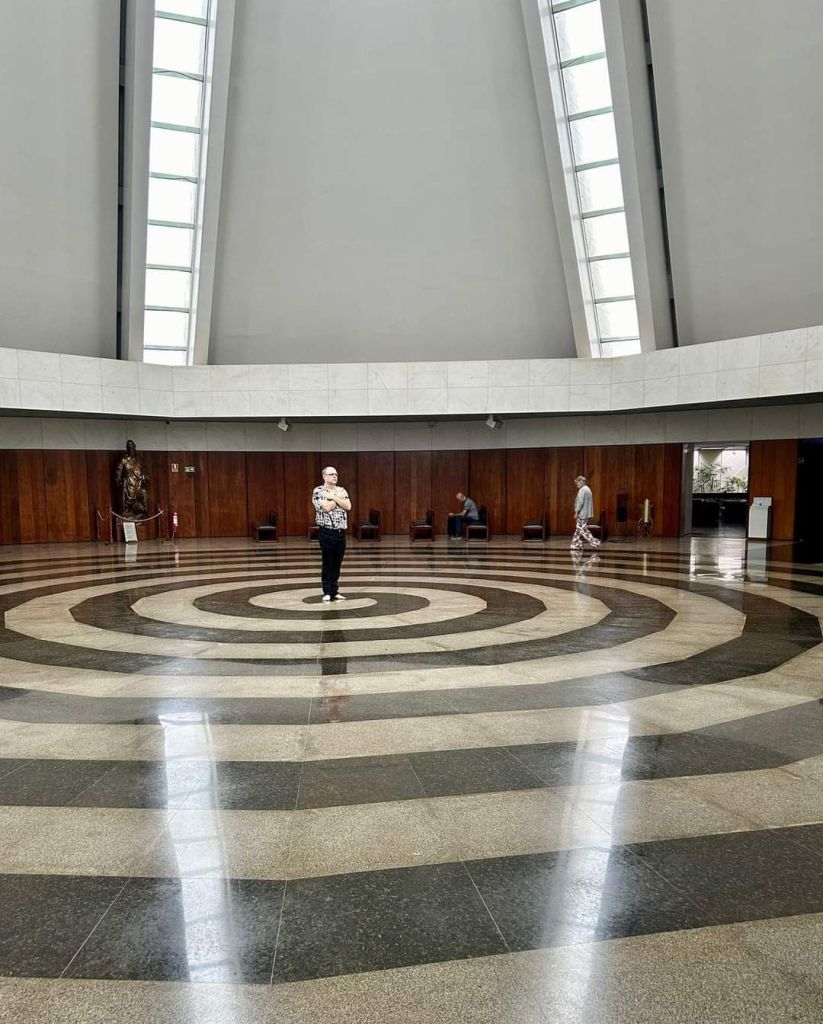
40 years later, in the heart of Brasília, I encountered a different kind of peak at the Templo da Boa Vontade. This spiritual sanctuary, with its labyrinthine pathways and pyramid-shaped dome, exuded a serene energy that invited introspection. Beneath the crystal dome, I performed ancient postures, immersing myself in the sacred geometry and celestial symbols surrounding me. In that space of profound quiet, I felt the vastness of the universe and awakened to my own potential, recognizing the interconnectedness of all existence.
Though these experiences were vastly different, they converged in their significance. Cathedral Peak challenged my physical limits, a testament to the plasticity of the material world. The mountain, once an impassable barrier, yielded to determination, proving that the physical realm is neither fixed nor immutable but malleable under human effort. In contrast, the Templo da Boa Vontade illuminated the elasticity of the spiritual world. Its sacred energy and timeless symbols expanded my consciousness, offering a glimpse into a realm unbound by physical constraints—a place where growth and transformation are limitless.
Together, these moments embody the duality and unity of existence. The material and spiritual realms are not distinct but deeply intertwined, each shaping and responding to the other. By embracing the plasticity of the physical world and the boundless elasticity of the spiritual, we find resilience in challenges and joy in opportunities. These peaks, both literal and metaphorical, serve as touchstones in my journey, reminding me of life’s extraordinary potential.
© Jurgens Pieterse. All rights reserved. 2024
]]>Share five things you’re good at.
I’ve always been fascinated by the interplay of systems and the hidden forces that drive them. As an Industrial Engineer, I’ve honed my skills in analyzing complex processes and optimizing outcomes. This analytical mindset has extended beyond the professional realm, allowing me to delve into the mystical and esoteric.
I’m a proud Grand Runemaster of the Knights of Runes, skilled in the ancient wisdom of the Armanen Futhorkh. I’ve applied this knowledge to various aspects of my life, from meditation and divination to practical magic. My contributions to the Knights of Runes’ annual journal, the Futhorkh, reflect my passion for sharing this knowledge with others.
My journey with Toastmasters International has further refined my communication and leadership skills. I’ve had the privilege of inspiring audiences both locally and internationally, sharing insights from both my professional and spiritual experiences.
As a leader, I’ve guided numerous individuals towards personal and professional growth. I’ve mentored and coached, empowering others to live authentically and achieve their full potential. Whether it’s through one-on-one sessions, group workshops, or simply offering words of encouragement, I’ve cultivated a toolbox of effective strategies to inspire and motivate.
Ultimately, my greatest strength lies in my ability to see the bigger picture while simultaneously paying attention to the details. I’m a skilled synthesizer, capable of bridging seemingly disparate ideas and uncovering new perspectives. This systems thinking approach has allowed me to help countless individuals reach their full potential.
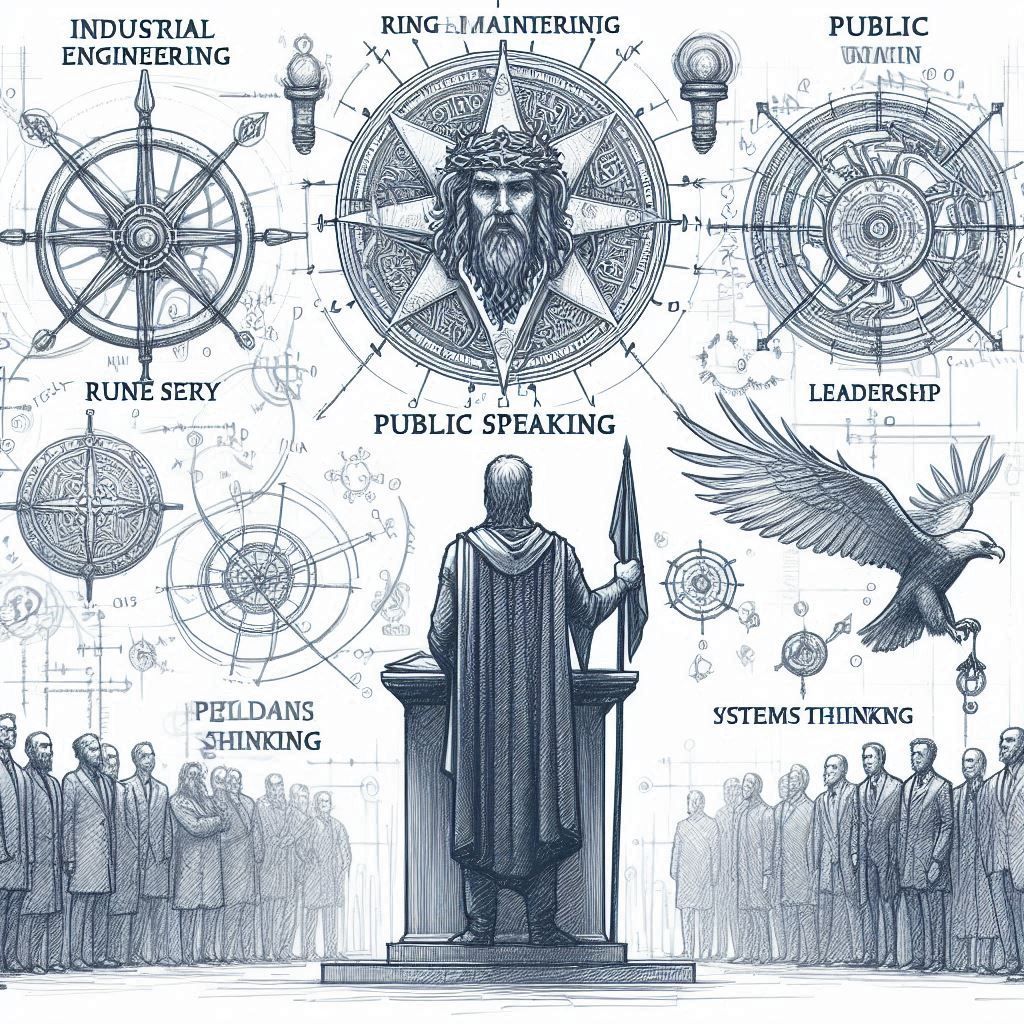
While I’ve achieved various accomplishments, I believe that true fulfillment comes from living authentically and embodying one’s values. External achievements are fleeting, but the qualities of the soul are timeless.
© Jurgens Pieterse, All rights reserved. 2024
]]>What was your favorite subject in school?
I can’t remember a time when I wasn’t enchanted by numbers. It all started in primary school when a wise teacher told me, “If you love math, math will love you back.” I was only ten, but those words stuck with me.
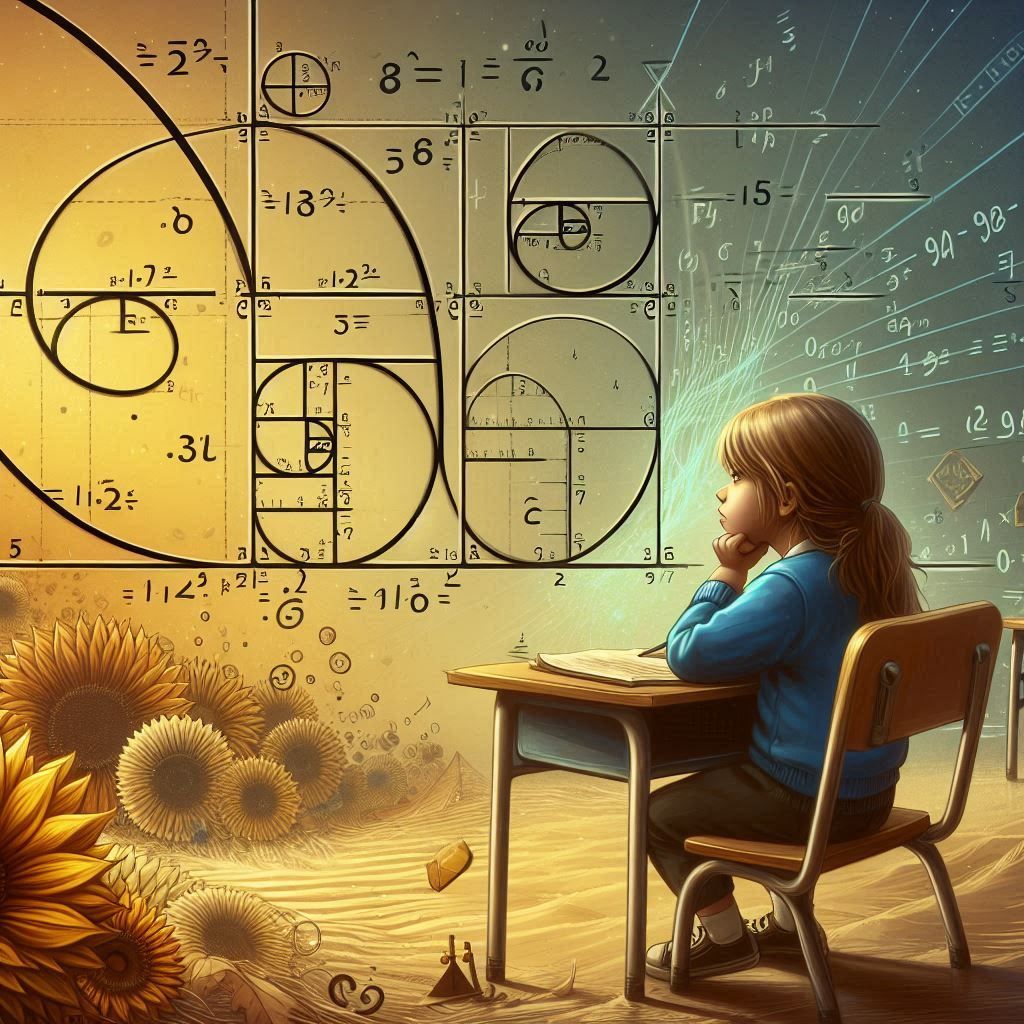
Of course, it wasn’t always easy. One teacher tried to drill multiplication tables into my head, but that wasn’t the way to my heart. It was a bit like trying to force a friendship! Luckily, a few years later, I met a truly inspiring teacher who ignited my passion for math. She encouraged me to think critically and explore new ideas, and her motto, “Think! It might be a new experience!” has stayed with me ever since.
Thanks to her, I discovered a love for problem-solving and logical thinking. This led me to pursue a degree in Industrial Engineering, where I faced many challenges, including some seriously tough math courses. I even threw a textbook against the wall in frustration once or twice! But through it all, my love for math kept me going.
Today, I’m grateful for the journey that math has taken me on. It’s a universal language that transcends cultures and borders. Whether I’m crunching numbers or simply admiring a beautiful equation, I’m always amazed by its power and elegance.
© Jurgens Pieterse. All rights reserved. 2024
I’ve always felt a deep yearning for something more, a connection to something ancient and profound. The runes answered that call. It was like finding a missing piece of myself, a key that unlocked a hidden door within. The moment I held them, a wave of recognition washed over me.
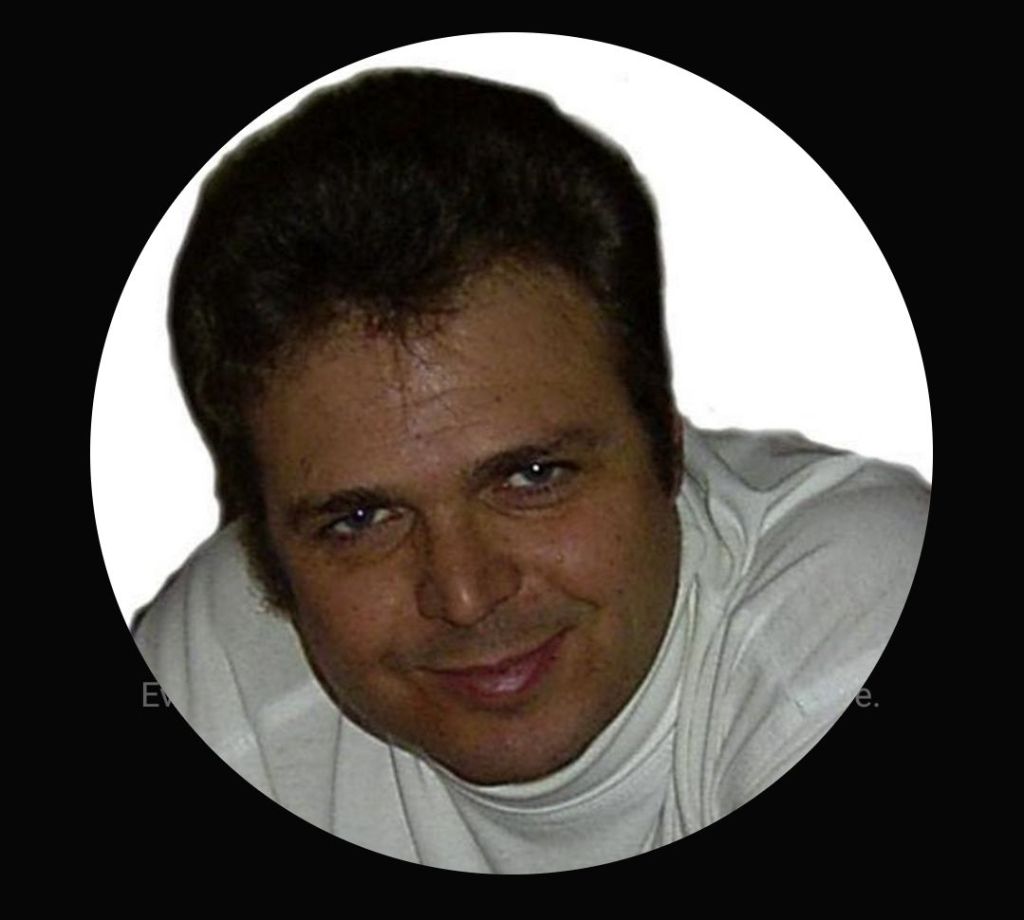
The runes felt familiar, as if they’d always been a part of me. They spoke to my soul in a language I couldn’t fully comprehend, but understood deeply. It was like returning home after a long journey.
With the runes, I discovered a wisdom passed down through generations, a power dormant within me. It was both exhilarating and humbling. They reawakened a part of my being that had been slumbering for ages, reminding me of a truth I had forgotten.
The runes filled me with a sense of purpose and meaning that had been missing. They became more than just symbols; they were a gateway to a deeper understanding of myself and the world.
© Jurgens Pieterse. All rights reserved. 2024
]]>Your life without a computer: what does it look like?

A life without computers? Impossible? You’re giving away your age, my young friend. I grew up in the heyday when none of these fancy gadgets existed. It’s not a dream from the stone age for me but a lived reality!
A life without computers was filled with the textured feeling and smell of a new book in your hands. Books were like the e-readers of their time, but without a screen.
There was the excitement of waiting for a newspaper to arrive at your doorstep. We actually had to go out to buy groceries and other items. Shopping was a social activity where people gathered to touch, feel, and taste products before buying them.
We could still remember our way to an address or figure out how to get to an end destination with a map. We had to fold them up and stuff them in our pockets. It was like a real-life adventure every time we went somewhere.
We met in parks, gave each other real hugs and heard our friends actually laughing. When we did not like something they did we told them straight in their face. Our friendships were real…. Authentic!
It’s easy to take for granted all the conveniences and tools we have today, from smartphones to food delivery apps to e-books. But it’s also important to remember that there was a lot of charm and simplicity in life before computers.
You might see boredom and lack in a life without computers, but let me tell you it was a life of many blessings. The skills and dexterity of times gone by might be forever lost for future generations.
© Jurgens Pieterse. All rights reserved. 2024
]]>Do you see yourself as a leader?
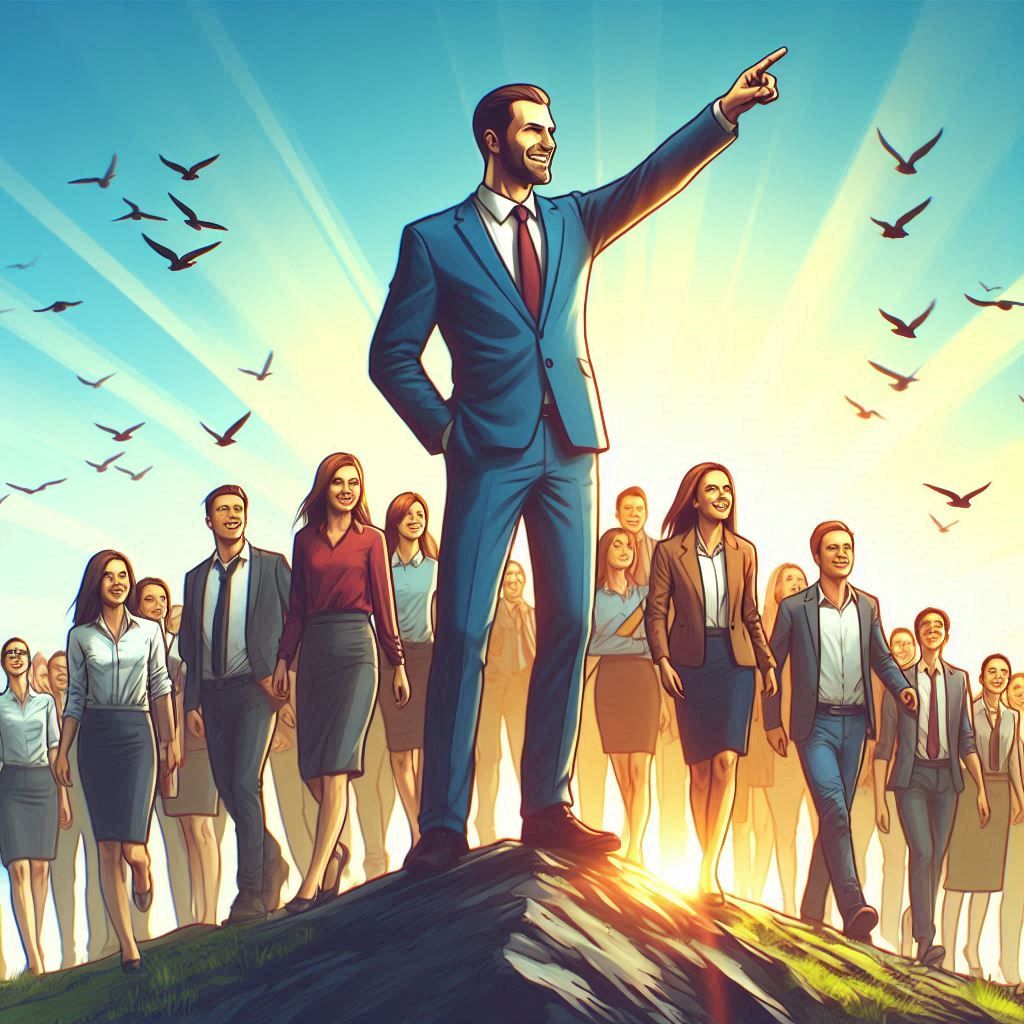
I’ve always been a natural leader, even from a young age. My first big leadership role was as the head of the chess playing team at school. I’ve always had a strong belief in myself and a desire to make a difference.
While I initially aspired to be a school prefect, I realized that popularity wasn’t the only path to leadership. Instead, I found my niche in community service and extracurricular activities. At primary school, I joined the school patrol, empowering myself to help others and ensure their safety. This early experience ignited my passion for leadership.
As a student, I discovered my leadership potential in the Christian youth movement. I led a small but dedicated group, learning to inspire others and set a clear vision. My studies also provided me with the knowledge and skills to be an effective leader.
Later in my career, as an industrial engineer and consultant, I was constantly challenged to find innovative solutions and guide teams to success. I even joined Toastmasters International to further develop my leadership and communication skills.
Throughout my career, I’ve held various leadership roles, from managing teams to serving on executive committees. I’ve always focused on empowering others, recognizing their unique qualities and potential. Seeing my team members grow and achieve their goals has been incredibly rewarding.
While my leadership roles may not have been grand, I’ve made a tangible impact on the lives of those around me. And that’s what truly matters to me.
© Jurgens Pieterse. All rights reserved. 2024
]]>